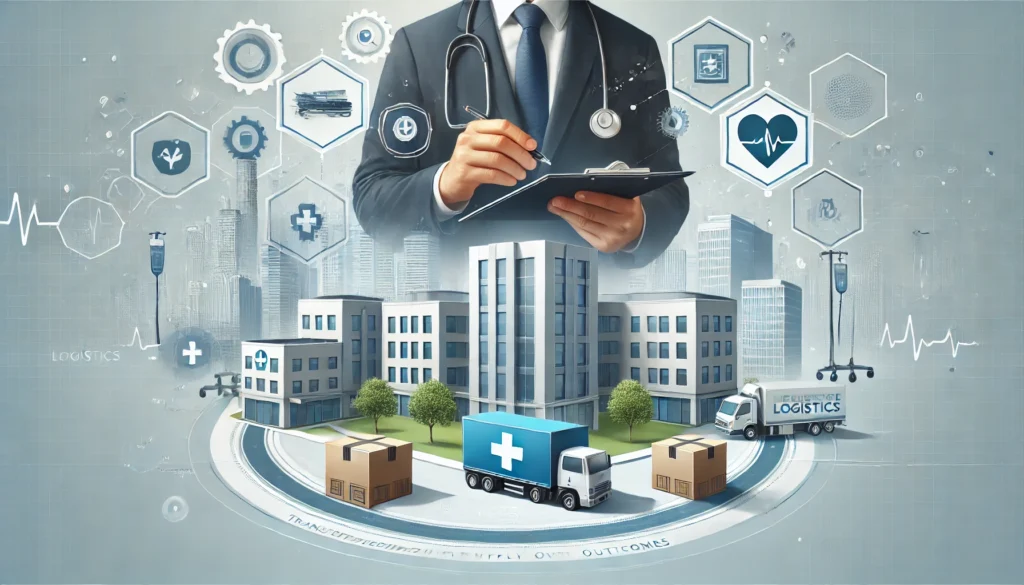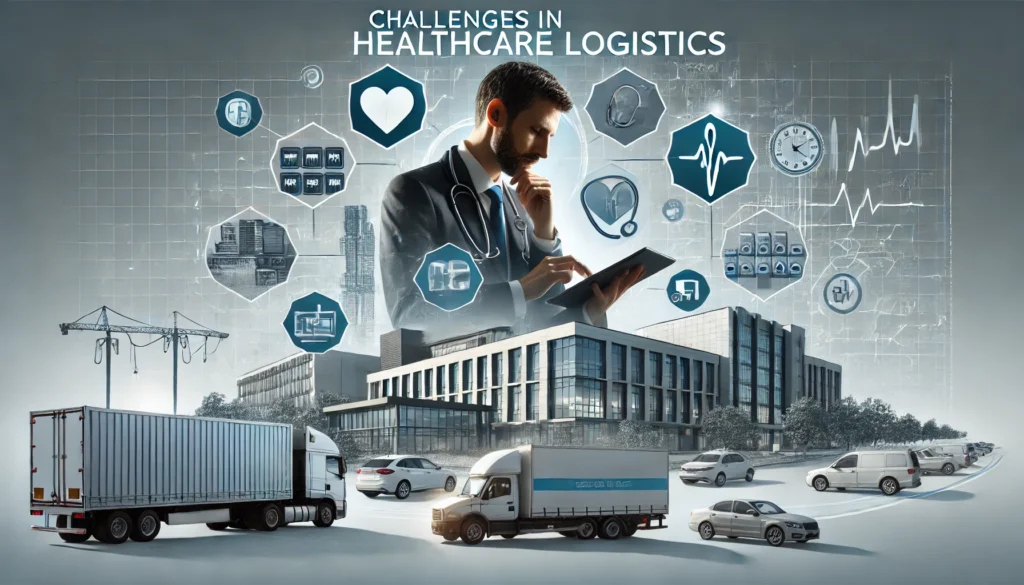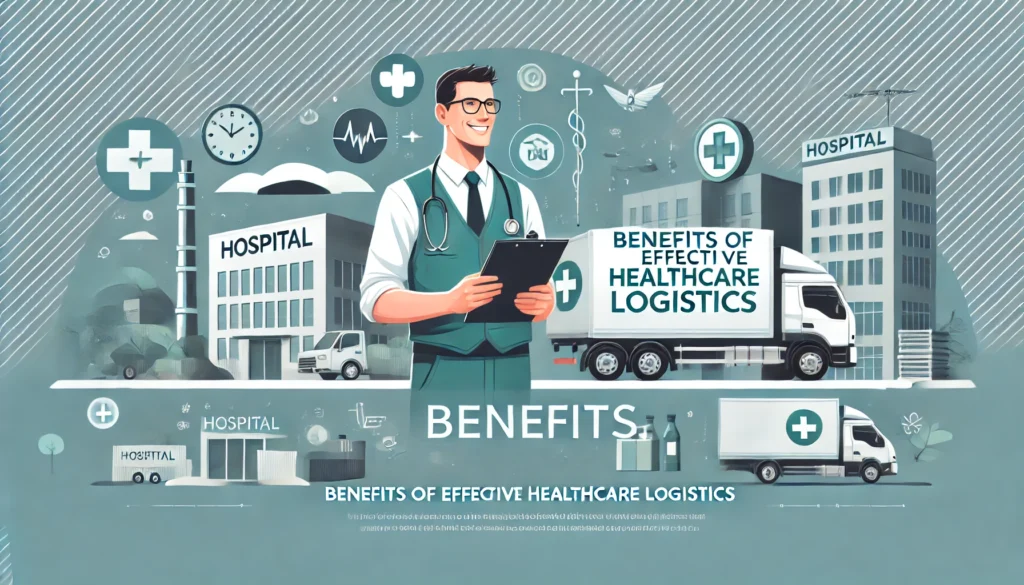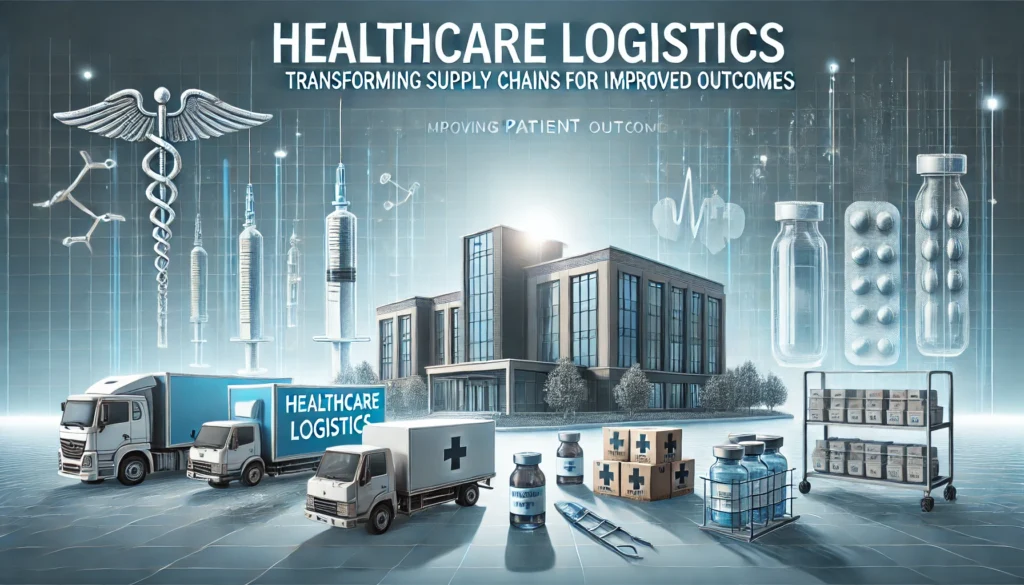Introduction
health care logistics In the modern healthcare landscape, logistics is more than just moving supplies from point A to point B—it is the backbone of efficient patient care. Healthcare logistics encompasses the management, transportation, and distribution of medical supplies, equipment, and resources to ensure timely and effective delivery. As the demand for precision and efficiency grows, healthcare logistics is evolving to transform supply chains and improve outcomes for patients and providers alike.

Understanding Healthcare Logistics
Healthcare logistics refers to the end-to-end process of procuring, storing, transporting, and delivering medical goods and services. It involves a complex network of suppliers, distributors, and healthcare facilities working together to ensure that everything from surgical instruments to life-saving medications reaches the right place at the right time.

Key components of healthcare logistics include:
- Supply Chain Management: Overseeing the flow of medical supplies and equipment.
- Transportation and Delivery: Ensuring timely distribution to hospitals, clinics, and patients.
- Inventory Management: Maintaining optimal stock levels to avoid shortages or excess health care logistics.
- Waste Disposal: Safely managing and disposing of medical waste in compliance with regulations health care logistics.
Challenges in Healthcare Logistics
Despite its critical importance, healthcare logistics faces several challenges:
- Demand Variability: Sudden increases in demand during pandemics or emergencies can strain supply chains.
- Regulatory Compliance: Logistics operations must adhere to strict healthcare laws and standards, including cold chain requirements for vaccines and temperature-sensitive medicines.
- Technology Integration: Many healthcare facilities struggle to adopt advanced technologies like AI, IoT, or blockchain due to costs or lack of expertise.
- Cost Management: Balancing affordability with quality and efficiency remains a constant challenge for healthcare organizations.

Innovations in Healthcare Logistics
To address these challenges, the industry is embracing innovative solutions:
- Artificial Intelligence (AI): AI-powered predictive analytics help forecast demand, optimize routes, and reduce delays.
- Blockchain Technology: Provides secure and transparent tracking of medical supplies, reducing fraud and ensuring authenticity.
- Drones and Autonomous Vehicles: Revolutionizing last-mile delivery by reaching remote areas with critical supplies.
- Internet of Things (IoT): Enables real-time monitoring of medical shipments, ensuring temperature-sensitive products maintain compliance.
- Telemedicine Integration: Reduces logistical burdens by providing virtual consultations and remote patient monitoring.
Case Studies
1. COVID-19 Vaccine Distribution:
During the pandemic, healthcare logistics played a pivotal role in the rapid and safe delivery of vaccines worldwide. Cold chain management and real-time tracking ensured vaccines reached even the most remote areas.
2. Automated Warehousing in Hospitals:
Leading hospitals have adopted automated inventory systems that use robotics to manage and replenish supplies, significantly reducing errors and wastage.
Benefits of Effective Healthcare Logistics
An optimized healthcare logistics system can lead to:
- Improved Patient Outcomes: Ensuring timely delivery of medical supplies directly enhances patient care and treatment effectiveness.
- Cost Efficiency: Streamlining logistics reduces operational costs, allowing healthcare providers to allocate resources more effectively.
- Adaptability in Emergencies: A well-organized logistics network can quickly respond to crises like natural disasters or pandemics.
- Sustainability: Advanced logistics methods minimize waste and environmental impact, contributing to greener healthcare operations.

Best Practices for Healthcare Logistics
To maximize efficiency, healthcare organizations can follow these best practices:
- Invest in Technology: Adopt AI and IoT solutions for real-time monitoring and predictive analytics.
- Build Strategic Partnerships: Collaborate with reliable suppliers and transport companies for smooth operations.
- Train Staff: Equip logistics teams with the skills and tools needed to handle modern challenges.
- Focus on Sustainability: Implement eco-friendly practices in supply chain management.
Conclusion
Healthcare logistics is no longer just an operational necessity—it is a strategic pillar for delivering high-quality care. By leveraging innovations like AI, blockchain, and IoT, the industry is transforming supply chains to meet the growing demands of modern healthcare. As we move forward, efficient logistics will continue to play a vital role in enhancing patient outcomes, reducing costs, and ensuring a resilient healthcare system.



